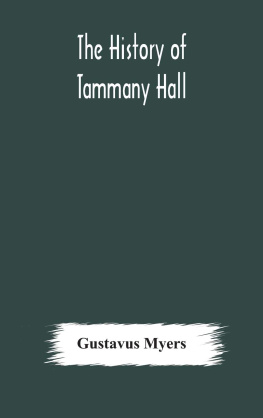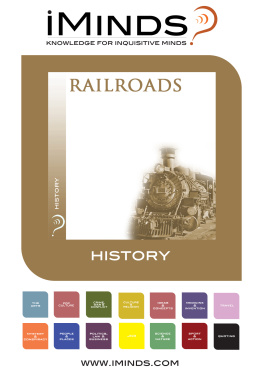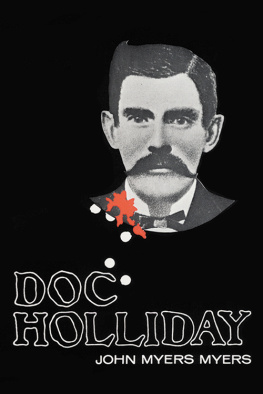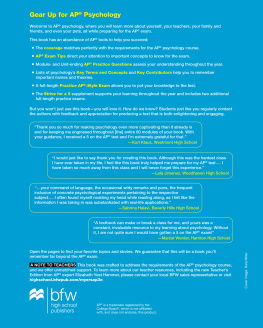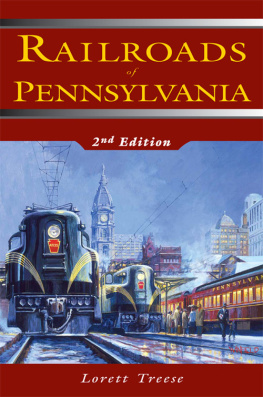I. THE SEIZURE OF THE PUBLIC DOMAIN
Table of Contents
II. A NECESSARY CONTRAST
III. THE BEGINNINGS OF THE VANDERBILT FORTUNE
IV. THE ONRUSH OF THE VANDERBILT FORTUNE
V. THE VANDERBILT FORTUNE INCREASES MANIFOLD
VI. THE ENTAILING OF THE VANDERBILT FORTUNE
VII. THE VANDERBILT FORTUNE IN THE PRESENT GENERATION
VIII. FURTHER ASPECTS OF THE VANDERBILT FORTUNE
IX. THE RISE OR THE GOULD FORTUNE
X. THE SECOND STAGE OF THE GOULD FORTUNE
XI. THE GOULD FORTUNE BOUNDS FORWARD
XII. THE GOULD FORTUNE AND SOME ANTECEDENT FACTORS
XIII. FURTHER ASPECTS OF THE VANDERBILT FORTUNE 260
CHAPTER I
Table of Contents
THE SEIZURE OF THE PUBLIC DOMAIN
Before setting out to relate in detail the narrative of the amassing of the great individual fortunes from railroads, it is advisable to present a preliminary survey of the concatenating circumstances leading up to the time when these vast fortunes were rolled together. Without this explanation, this work would be deficient in clarity, and would leave unelucidated many important points, the absence of which might puzzle or vex the reader.
Although industrial establishments, as exemplified by mills, factories and shops, much preceded the construction of railroads, yet the next great group of fortunes to develop after, and along with, those from land were the fortunes plucked from the control and manipulation of railroad systems.
THE LAGGING FACTORY FORTUNES.
Under the first stages of the old chaotic competitive system, in which factory warred against factory, and an intense struggle for survival and ascendency enveloped the whole tense sphere of manufacturing, no striking industrial fortunes were made.
Fortunate was that factory owner regarded who could claim $250,000 clear. All of those modern and complex factors offering such unbounded opportunities for gathering in spoils mounting into the hundreds of millions of dollars, were either unknown or in an inchoate or rudimentary state. Invention, if we may put it so, was just blossoming forth. Hand labor was largely prevalent. Huge combinations were undreamed of; paper capitalization as embodied in the fictitious issues of immense quantities of bonds and stocks was not yet a part of the devices of the factory owner, although it was a fixed plan of the bankers and insurance companies.
The factory owner was the supreme type of that sheer individualism which had burst forth from the restraints of feudalism. He stood alone fighting his commercial contests with persistent personal doggedness. Beneath his occasional benevolence and his religious professions was a wild ardor in the checkmating or bankruptcy of his competitors. These were his enemies; he fought them with every mercantile weapon, and they him; and none gave quarter.
Apart from the destructive character of this incessant warfare, dooming many of the combatants, other intervening factors had the tendency of holding back the factory owners' quick progressobstacles and drawbacks copiously described in later and more appropriate parts of this work.
MIGHT OF THE RAILROAD OWNERS.
In contrast to the slow, almost creeping pace of the factory owners in the race for wealth, the railroad owners sprang at once into the lists of mighty wealth-possessers, armed with the most comprehensive and puissant powers and privileges, and vested with a sweep of properties beside which those of the petty industrial bosses were puny. Railroad owners, we say; the distinction is necessary between the builders of the railroads and the owners. The one might construct, but it often happened that by means of cunning, fraud and corruption, the builders were superseded by another set of men who vaulted into possession.
Looking back and summing up the course of events for a series of years, it may be said that there was created over night a number of entities empowered with extraordinary and far-reaching rights and powers of ownership.
These entities were called corporations, and were called into being by law. Beginning as creatures of law, the very rights, privileges and properties obtained by means of law, soon enabled them to become the dictators and masters of law. The title was in the corporation, not in the individual; hence the men who controlled the corporation swayed the substance of power and ownership. The factory was usually a personal affair, owned by one man or in co-partnership; to get control of this property it was necessary to get the owner in a financial corner and force him to sell out, for, as a rule, he had no bond or stock issues. But the railroad corporation was a stock corporation; whoever secured control of a majority of the stock became the legal administrator of its policies and property. By adroit manipulation, intimidation, superior knavery, and the corrupt domination of law, it was always easy for those who understood the science of rigging the stock market, and that of strategic undermining, to wrest the control away from weak, or (treating the word in a commercial sense) incompetent, holders. This has been long shown by a succession of examples.
THE LEGALIZING OF CUNNING
Thus this situation, so singularly conflicting with the theoretical majesty of the law, was frequently presented: A band of men styling themselves a corporation received a perpetual charter with the most sweeping rights and properties. In turn, the law interposed no effective hindrance to the seizing of their possessions by any other group proving its power to grasp them. All of this was done under nominal forms of law, but differed little in reality from the methods during medieval times when any baron could take another baron's castle and land by armed force, and it remained his until a stronger man came along and proved his title likewise.
Long before the railroad had been accepted commercially as a feasible undertaking, the trading and land-owning classes, as has been repeatedly pointed out, had demonstrated very successfully how the forms of government could be perverted to enrich themselves at the expense of the working population.
Taxation laws, as we have seen, were so devised that the burden in a direct way fell lightly on the shipping, manufacturing, trading, banking and land-owning classes, while indirectly it was shoved almost wholly upon the workers, whether in shop, factory or on farm. Furthermore, the constant response of Government, municipal, State and National, to property interests, has been touched upon; how Government loaned vast sums of public money, free of interest, to the traders, while at the same time refusing to assist the impoverished and destitute; how it granted immunity from punishment to the rich and powerful, and inflicted the most drastic penalties upon poor debtors and penniless violators of the law; how it allowed the possessing classes to evade taxation on a large scale, and effected summarily cruel laws permitting landlords to evict tenants for non- payment of rent. These and many other partial and grievously discriminative laws have been referred to, as also the refusal of Government to interfere in the slightest with the commercial frauds and impositions constantly practiced, with all their resulting great extortions, upon the defenceless masses.




